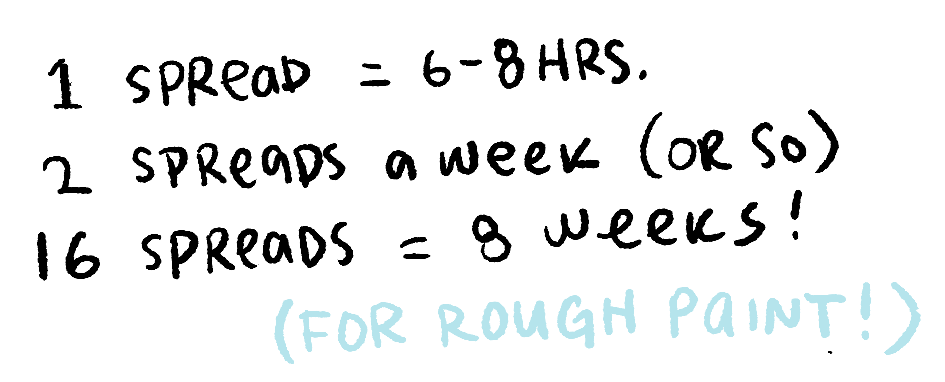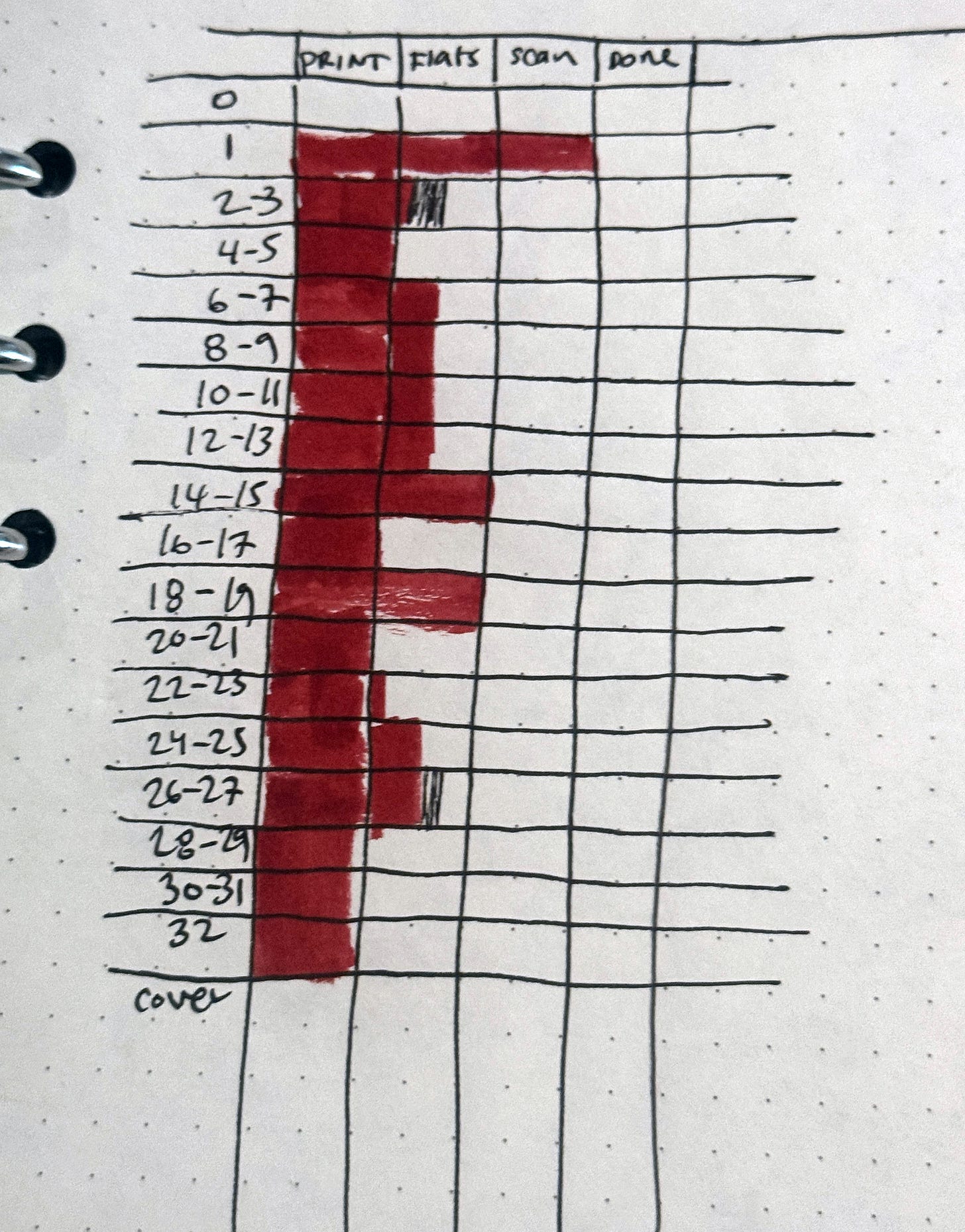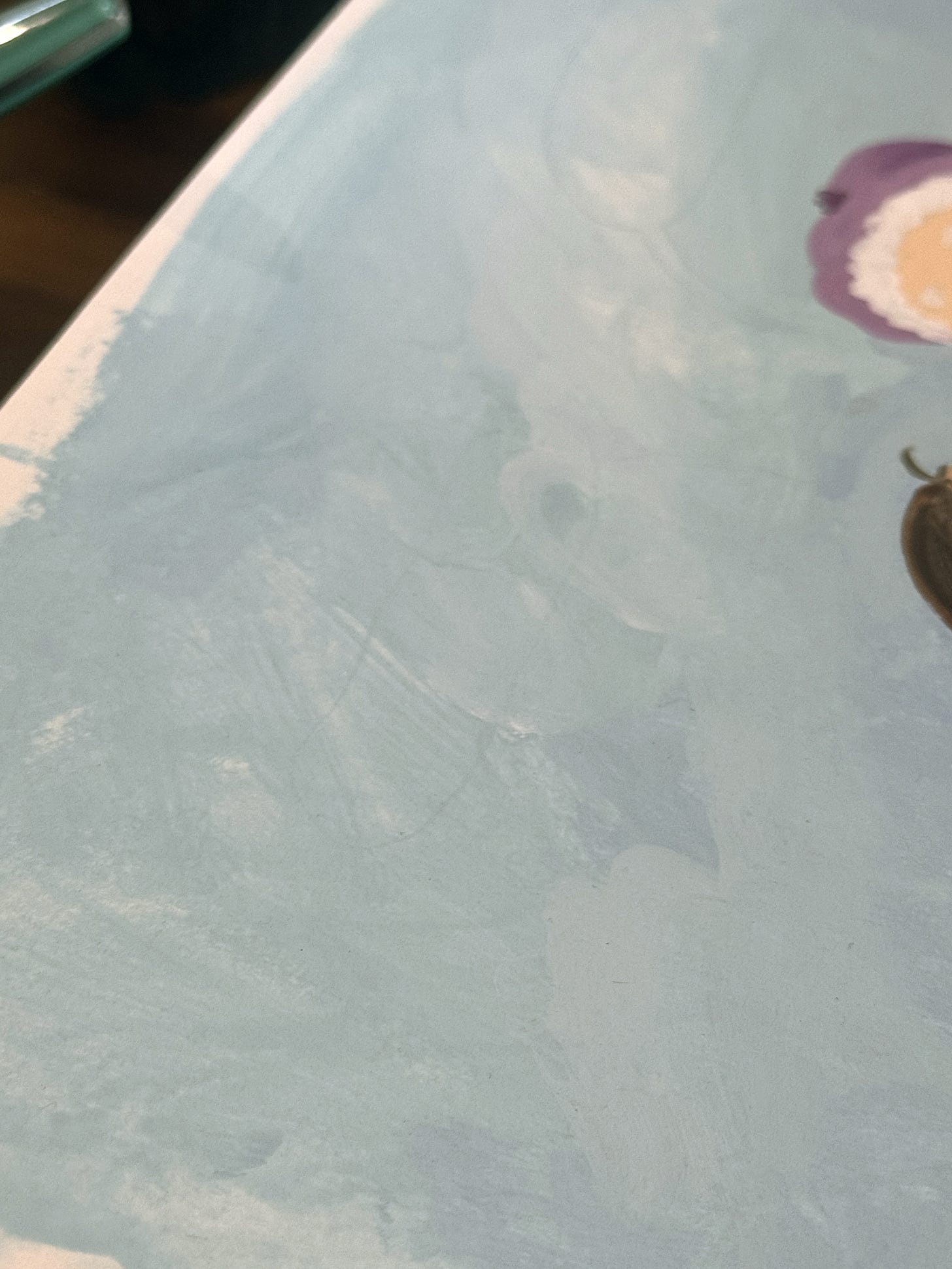For the Fun of It - schedules for longer projects (while you're working!)
all my tips and tricks for managing limited brain space
I’ve always been someone with a lot of projects on the go. My husband will force me to write all my jobs out on a whiteboard sometime, so he can keep track of them.
Some of it is working on books, a passion and huge emotional part of my creative practice, but still not sustainable for me as a full-time job (yet!).
Some of it is scarcity mindset- particularly after a downturn in the animation industry, it feels impossible to say no to things. Either way, my list of jobs grows and ebbs over the year.
Right now, I’m working full-time and illustrating a picture book (which hasn’t been announced). It’s fun and busy and a LOT, so I thought it might be interesting to talk about how I organize my longer projects (like a picture book) around a full-time 40 hr a week job.
First- be realistic about your time!
Currently, I don’t have any kids, so I have fairly free nights and weekends. I am a little tired, but can generally put in at least an hour or two during weeknights (usually more!). I have a pretty good sense now of how long it takes me to do things, which helps.
Then, you need a deadline. It can be self imposed (if you’re working on a personal project), or something you discuss with your publisher or client. At this point, I always give it at least 2x what you think it will be. Notes and life ALWAYS get in the way, so double whatever you think originally.
Another part about being realistic with your time is taking a look at your other obligations. If you’re taking a class, or you want to leave time for other personal work or explorations, factor that in. But wait, how do you know how long something might take?
Breaking it down
A great resource is Carey Pietsch’s comic deadline planner! Though I’ve only done a few graphic novels, this spreadsheet shows how you can break down a longer projects into steps and give each a specific length of time that it might take to complete. I love this spreadsheet because it gives time for days off, which can be easily overlooked!
Again, always over estimate! I love having mini deadlines before a big final deadline, because they give you check points on the way to handing something in. Once you start locking down those mini deadlines, you’ll be surprised at how far off the days are- don’t worry, they’ll pass sooner than you think ;)
Above is my estimation for rough paint for my current book! I usually add an extra month for life (and some spreads are harder than others!)
Think in weeks, not days
I think planning day by day can be exhausting and not realistic to how life goes. If a friend asks you to go to dinner, but you haven’t finished your 2.3 pages you need to do for the day, you might start to panic. I think scheduling weekly gives room for that spontaneity. Weekly gives you wiggle room without being too lenient.
If you work a month to month schedule, you might procrastinate and try to do a months’ worth of work in a week. You can still do that with the weekly schedule, it’s just a little less overwhelming. We want to get things done, after all!
Mark off as you go
I love my paper planner but I have friends who thrive in spreadsheet land. Either way, nothing will make you happier then when you start seeing those little squares get filled up. I think it helps to break it down by steps too, so you can fill in squares earlier.
For my picture book process, by the time I start to track, I have print, paint, scan, and final!
It can also be helpful to check in from time to time with your progress and your deadlines- are they where they need to be? Do you need to speed up? Can you afford to slow down?
For this picture book project, I realised I had a few trips coming up that would take up some valuable work time, so I had to speed up my schedule. That’s why you build in the buffer time, but if you need to hustle, that’s okay too.
Systems?! Tools?
I know there are a lot of new softwares out there to help manage projects.
Things like—
I don’t use those because I prefer to do things on paper, and break things down by my own methods, but if this seems overwhelming to you, it might be worth trying out one of these! Half the fun of putting together a project schedule can be the journey and breaking down how you migth do it (just remember to get started at some point ;)
I hope this was interesting!! Do you have any organizing tools you like to use?
Speaking of painting picture books, I’ve been getting a lot of use out of this Acryl Gouache retarder medium (particularly once I decanted it into a dropper bottle I got from my beloved stlartsupply!
Retarder is similar to acrylic slow-drying mediums- it helps slow down the drying time of notoriously speedy drying gouache. This makes gradients easier to achieve. For me, I also love how it helps smooth out the application of paint. If you use too much, it gets streaky (which I actually LOVE- it gives big washes a homemade feel!)
anyway ok i love u bye
-Ashlyn












